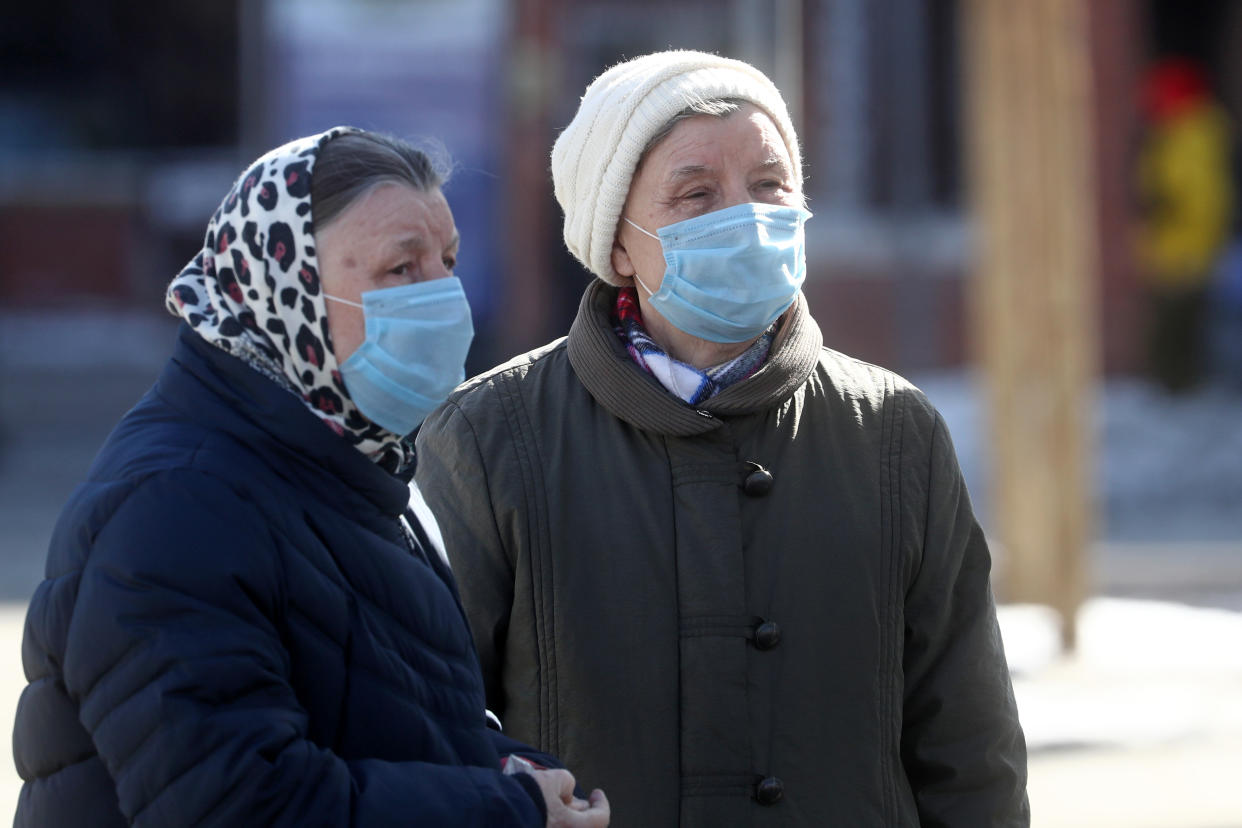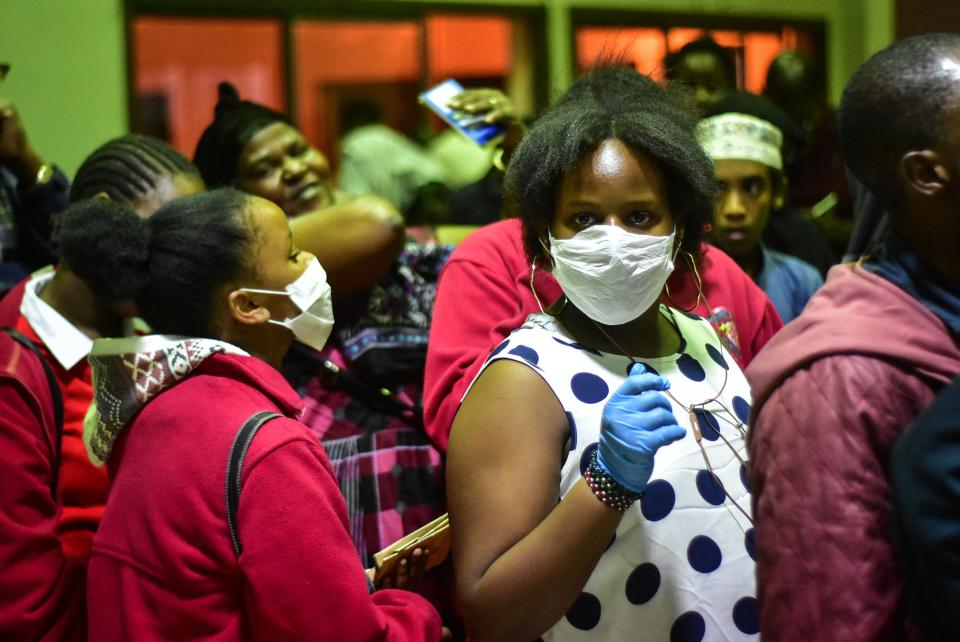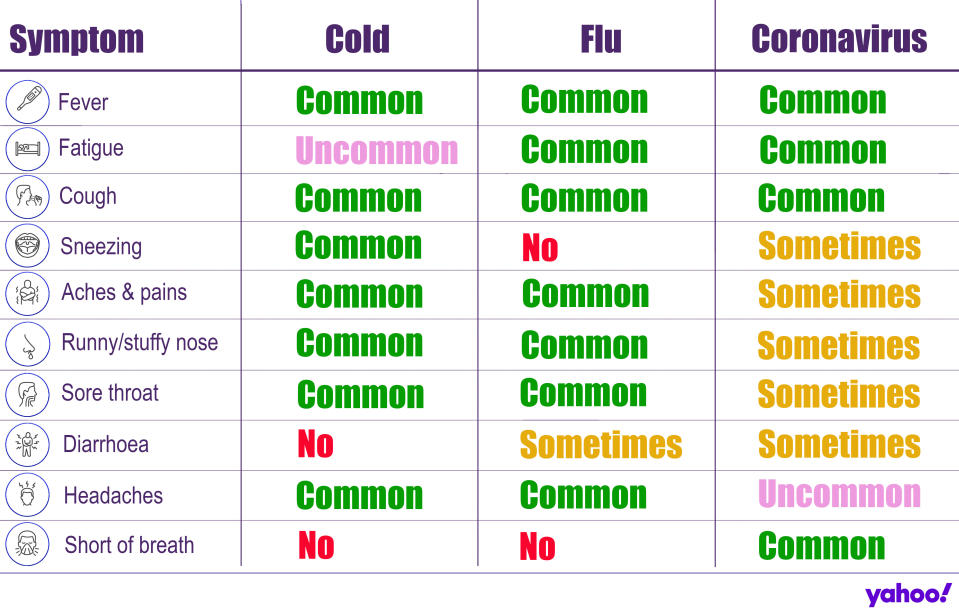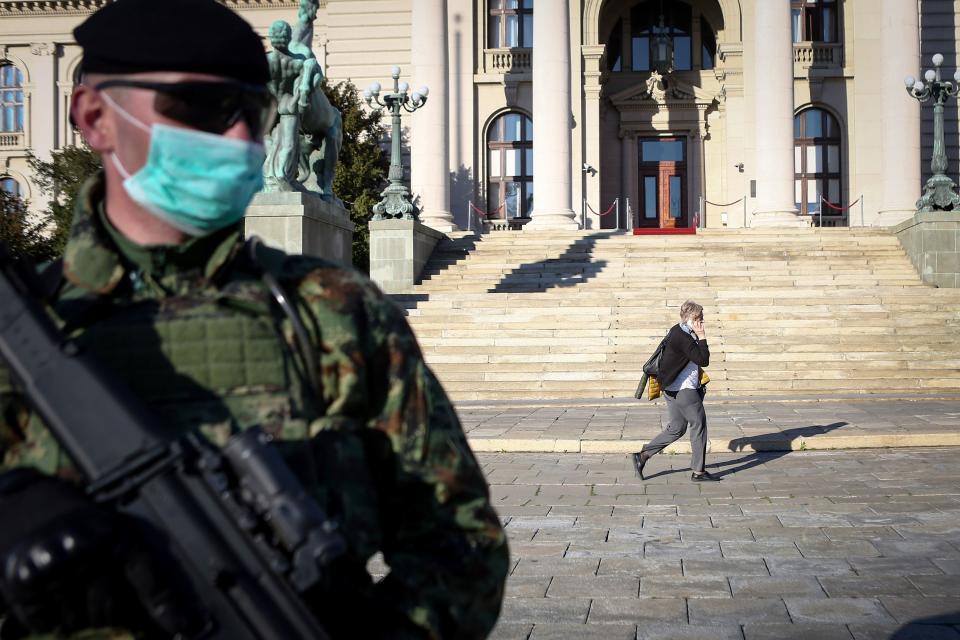Coronavirus: the impact of social-isolation on the elderly

Elderly people in England are expected to be told to self-isolate entirely to protect them from the coronavirus “in the coming weeks”, with everyone else already being urged to avoid social contact.
While no one has immunity to the previously-unknown viral strain, the vast majority of deaths are occurring in the elderly or those with underlying health issues.
In a bid to protect these vulnerable individuals, the health secretary Matt Hancock told Sky News it is in the government’s “action plan” for them to “shield themselves by self-isolating” for up to four months.
Hancock admitted it is a “big ask”, adding “it's for their own self-protection”.
For the most part, experts agree such extreme measures are “sensible”, but worry about the psychological impact.
Latest coronavirus news, updates and advice
Live: Follow all the latest updates from the UK and around the world
Fact-checker: The number of Covid-19 cases in your local area
Explained: Symptoms, latest advice and how it compares to the flu

Prime minister Boris Johnson called on Britons to avoid social contact with others as of Monday by working from home, and avoiding bars, pubs and other venues.
Chief medical adviser Professor Chris Whitty said the single aim is to reduce deaths, with the elderly among the most vulnerable.
Since the outbreak emerged at a seafood and live animal market in the Chinese city Wuhan at the end of last year, more than 179,000 cases have been recorded across 155 countries, according to John Hopkins University data.
China was once the epicentre, however, patient numbers have been plateauing since the end of February.
Europe is now the worst hit part of the world, with Italy alone recording more than 27,000 cases and over 2,000 deaths.
Globally, the death toll has exceeded 7,000.
Patients are also recovering, however, with more than 78,000 now testing negative.
The UK’s two latest Covid-19 victims were men aged 50 and 60, both of whom were said to have underlying health issues.
Scientists from the Chinese Center for Disease Control and Prevention previously published information on the 44,672 confirmed cases as of 11 February.
Results suggested the highest fatality rate was in those aged 80 or over, where 14.8% did not recover.
In patients up to 39, the death rate was 0.2%.
No fatalities were reported in children up to nine years old.
As to why these death patterns are occurring, a human’s immune system naturally becomes less “sharp” with age.
“The reason for this is multifactorial,” said Professor Janet Lord from the University of Birmingham.
“Part of it is exaggerated inflammation caused by the response of the immune system and also the aged lung which is less resilient to damage induced by infections.”

How could the elderly be affected by a four month ‘lockdown’?
“Self isolation of those over 70 is of course a sensible move as it minimises the risk of exposure for our most vulnerable population group,” said Professor Alan McNally, also from the University of Birmingham.
“Alongside wider social distancing measures, and combined with frequent hand washing, this is still our best level of protection against the epidemic.
“Of course it is not easy and will require an active role from the wider community, volunteering to shop and so on for those who are self-isolated.
“But in unprecedented times, one hopes communities will rally together.”
He added, however, this will not be a “quick fix”.
“Clearly the virus won’t disappear if we isolate [the] over 70s for a couple of weeks,” said Professor McNally.
“Indeed even everyone in the country self-isolating for a couple of weeks won’t make it go away.
“But it will reduce transmission events and this is our best chance of controlling the epidemic curve.”
Professor Paul Hunter from the University of East Anglia called the isolation of the most vulnerable “absolutely the right thing to do”.
Rather than stopping the spread of the virus altogether, such extreme measures aim to protect the most at-risk.
“If we can reduce the number of elderly getting the infection this year then even if the infection spreads widely in other age groups, we should be able to stop a substantial number of deaths and so reduce the mortality rate this year,” he said.
“If we can delay infections in the most vulnerable people until next year then hopefully a vaccine will have become available.”
Covid-19 has no jab or “set” treatment. Patients requiring hospitalisation are offered “supportive care”, like ventilation, while their immune system works to fight off the virus.
While self-isolation may go some way to warding off Covid-19 related fatalities, the psychological effects could be significant.
“It will not be easy as many [elderly] people have carers and may need routine healthcare,” said Professor Keith Neal from the University of Nottingham.
“People who live on their own will particularly have increased feelings of loneliness.
“Four months of isolation will have a psychological impact.”
Being “cooped up” could also have a lasting effect on a vulnerable person’s physical health.
“If the older adult remains indoors they will take less exercise and we know this makes the immune system worse”, said Professor Lord.
“Unless the older adult has a good support network it could be difficult to be in isolation for four months, for example for getting their regular prescriptions, food etc.
“Also if they lose their social networks this is also not good for health.”
Boris Johnson has called on the public to adopt a Blitz-like spirit while we get through this outbreak.
“It is essential whilst we ask our elderly and other vulnerable individuals to isolate themselves, we do not leave them alone to fend for themselves”, said Professor Hunter.
“But [instead] make sure someone is looking after them and do what we can to help them survive the next few months whilst retaining their physical and mental health, and their dignity”.
Professor William Keevil from the University of Southampton suggested leaving food on the doorstep and giving the elderly a lesson in technology before the “lockdown” comes into play.
“Stay in contact with them by telephone, Skype etc. to avoid them becoming lonely or depressed”, he said.
“Perhaps treat them to a simple iPad type of device or similar, and show them how to use it for Facetime or Skype visual calls with you”.
Not everyone is convinced such extreme measures are a viable solution, however.
“In a democratic society, we should be very cautious about allowing the state to encroach on the space for individual decision-making and voluntary actions,” said Professor Robert Dingwall from Nottingham Trent University.
“Even in a public health crisis, one size does not fit all and a degree of flexibility may mean better outcomes for everyone.
“Self-isolation must not turn into self-imprisonment”.
He wondered if some “young or middle-aged people” have “yet to accept death is a normal part of life”.
“It comes to all of us in good time,” said Professor Dingwall.
“No-one is advocating that any old person is abandoned to die without professional nursing care.
“However, we should acknowledge that many frail old people might see Covid-19 infection as a relatively peaceful end compared with, say, several years of dementia or some cancers”.

What is the coronavirus Covid-19?
Most of those who initially caught the Covid-19 virus worked at, or visited, the “wet market” in Wuhan.
The pathogen mainly spreads via infected droplets that have been coughed or sneezed out by a patient.
There is also evidence it may be transmitted in faeces and urine.
In most cases, a patient’s immune system naturally fights off the virus.
Pneumonia can come about when the infection causes the alveoli (air sacs) in the lungs to become inflamed and filled with fluid or pus.
The lungs then struggle to draw in air, resulting in reduced oxygen in the bloodstream.
To ward off infection, officials urge people to wash their hands regularly and maintain social distancing.



